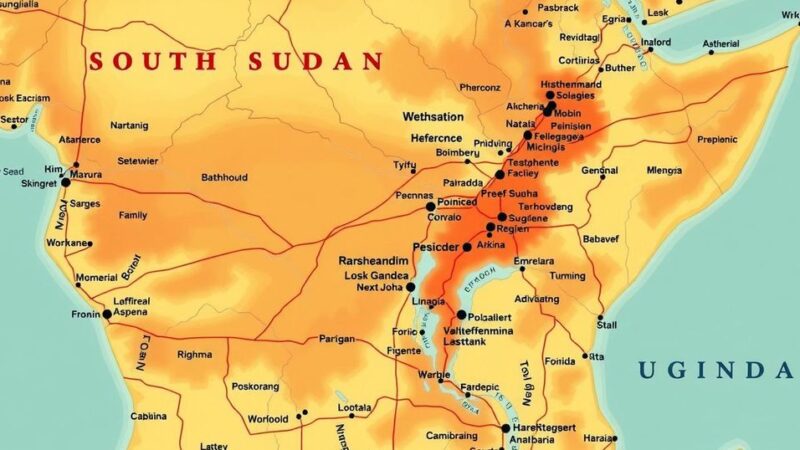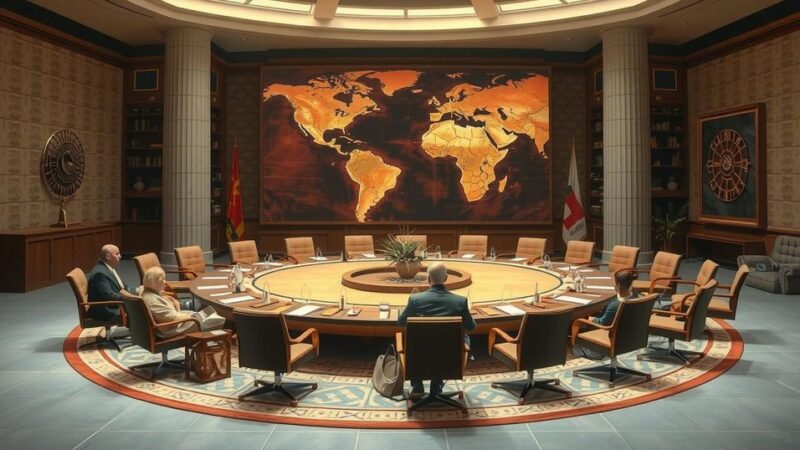Sudan’s military clashes with the RSF in Khartoum have elicited mixed reactions among civilians. While the army is seen as a liberator by some, activists warn of severe human rights violations and escalating violence. Many civilians experience displacement, looting, and fear of retaliatory attacks, contributing to a worsening humanitarian crisis.
As Sudan’s military drives the Rapid Support Forces (RSF) from Khartoum, civilian reactions remain divided. While some Sudanese residents view the army as a liberating force, activists report escalating violence from both factions that worsens the humanitarian crisis already afflicting the nation. The RSF has been noted for its brutal tactics, including an artillery strike in Omdurman that resulted in several civilian casualties.
Over recent weeks, the army has encountered increased resistance from RSF fighters, leading to a partial siege of central districts in Khartoum. Activist Augreis describes the dire conditions, stating, “Right now, the city is besieged…and the only way out of it is heading west to Darfur, but this route is targeted by [army] drones and fighter jets.” The ongoing conflict, which began in April 2023, has created one of the largest humanitarian crises globally.
The displacement crisis has resulted in significant numbers of people returning to areas from which they were forced to flee, particularly in Omdurman. Local relief worker Montasser shared that while many are returning with joy, significant devastation remains: “Many people lost their homes, and everything inside them was looted [by the RSF].”
Although the army’s presence offers a sense of safety for some, fears of retribution from army-backed units persist among civilians, particularly those from ethnic minorities. Activist Augreis highlighted the palpable terror among people from historically marginalized groups regarding the potential for violence against them, emphasizing their lack of perceived entitlement to Khartoum.
Incidents of violence include extrajudicial killings targeting ethnic groups recently reported by the United Nations Human Rights Office. Army spokesperson Nabil Abdullah denied the claims, asserting the army’s commitment to upholding legal standards amid the turmoil.
As the conflict progresses, looting by RSF fighters continues to pose a grave threat to civilians, with reports of homes being raided and precious possessions, including electronics and monetary resources, being stolen. Relief worker Musab expressed his fear, stating, “I’m more afraid of the RSF than the army at this time.”
The situation in Sudan is evolving rapidly, bringing both hope and despair. While some civilians are cautiously optimistic about the army’s advances against the RSF, the overall security landscape remains grim, with ongoing violence and civilian displacement shaping the nation’s future.
In conclusion, the ongoing conflict in Sudan between the army and the RSF has generated a complex and dire humanitarian situation. While some civilians welcome the army’s efforts to drive out RSF forces, many fear retribution and violence from both factions. Displacement continues to be a critical issue, with significant infrastructure damage and insecurity plaguing the region. As the situation develops, the need for international attention and intervention remains urgent.
Original Source: www.aljazeera.com






